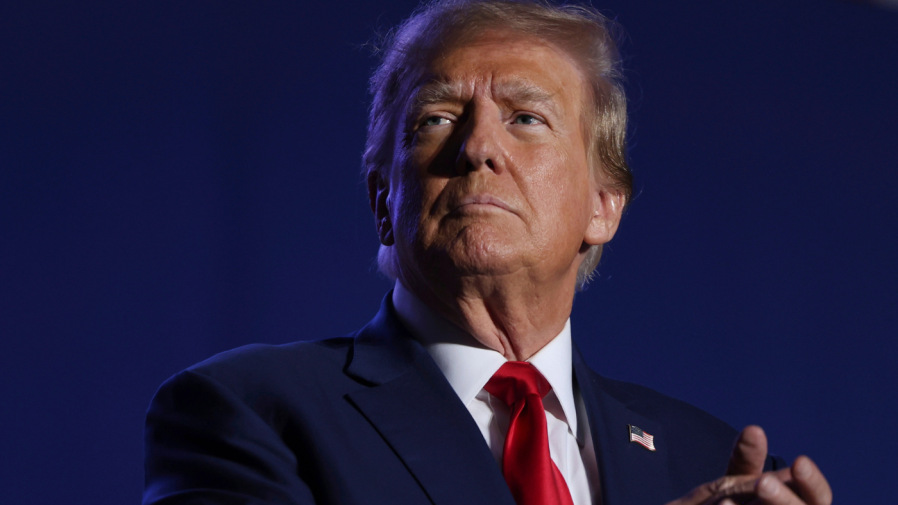Maine judge defers decision on Trump 14th Amendment question until Supreme Court rules

- Oops!Something went wrong.Please try again later.
A Maine judge deferred a decision on whether former President Trump is disqualified from the state’s ballot under the 14th Amendment on Wednesday, allowing the Supreme Court to first weigh in on the extraordinary dispute.
Maine Secretary of State Shenna Bellows (D) ruled last month that Trump was disqualified, making Maine the second state to do so and leading the former president to appeal the decision in court.
Superior Court Justice Michaela Murphy, who was assigned the appeal, declined to weigh in on the merits in a ruling issued Wednesday.
Instead, Murphy slammed the brakes until the Supreme Court resolves a similar case challenging Trump’s ballot eligibility that arose from Colorado. In the meantime, Trump’s name will remain on the ballot.
The high court is hearing the dispute at a speedy pace, with oral arguments scheduled for Feb. 8 and a decision to follow that could dictate Trump’s future on ballots in states across the country.
The 14th Amendment prohibits someone from holding “any office … under the United States” if they “engaged in insurrection” after taking an oath to support the Constitution. Plaintiffs in the cases argue Trump’s actions surrounding the Jan. 6, 2021, Capitol attack mean he should be kept off the ballot.
“Ultimately, we’re happy with the Court’s decision to leave the Secretary’s ruling intact: that Trump is an insurrectionist and that the 14th amendment applies. We’ll decide next steps soon,” Ethan Strimling, a former mayor of Portland, Maine, who filed one of the original petitions challenging Trump’s eligibility in the state, said in a statement.
Murphy’s ruling sends the Maine case back to the secretary of state, instructing Bellows to wait for the Supreme Court’s decision and then within 30 days issue a new ruling in light of the justices’ opinion.
“Put simply, the United States Supreme Court’s acceptance of the Colorado case changes everything about the order in which these issues should be decided, and by which court,” Murphy wrote in her 17-page ruling.
“And while it is impossible to know what the Supreme Court will decide, hopefully it will at least clarify what role, if any, state decision-makers, including secretaries of state and state judicial officers, play in adjudicating claims of disqualification brought under Section Three of the Fourteenth Amendment to the United States Constitution,” her ruling continued.
Top Stories from The Hill
Supreme Court signals it will claw back federal agency power
Fani Willis claims put top Georgia prosecutor in political jeopardy
Johnson: Now is not ‘the time for comprehensive immigration reform’
Murphy also agreed to keep Trump’s name on Maine’s ballot in the meantime, at least until the Supreme Court issues its decision. Parties on both sides had consented to such a move, and a similar pause has been implemented in the Colorado case.
It means that, as of now, Trump’s name is on the ballot nationwide until a resolution from the nation’s highest court, which includes three Trump appointees.
“This is a correct action, and we remain steadfast in our opposition to these bad-faith shams. President Trump is confident that we will ultimately prevail with a fair ruling on the issues in front of the Supreme Court,” Trump spokesman Steven Cheung said in a statement.
Both Maine and Colorado will hold their primaries on Super Tuesday, March 5.
Updated: 4:32 p.m.
For the latest news, weather, sports, and streaming video, head to The Hill.

